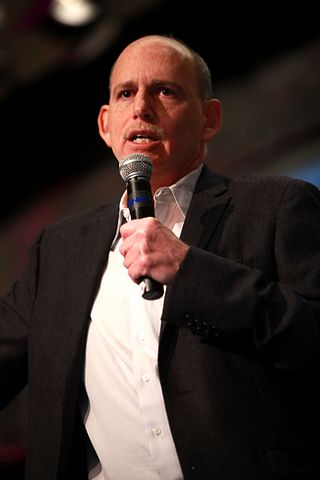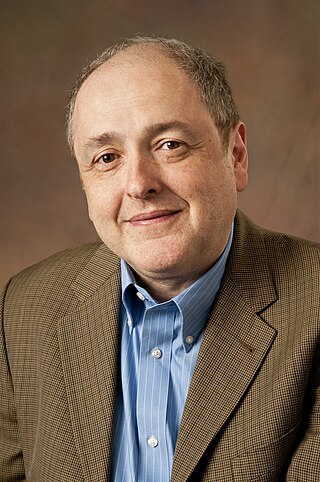Related Research Articles

A victimless crime is an illegal act that typically either directly involves only the perpetrator or occurs between consenting adults. Because it is consensual in nature, whether there involves a victim is a matter of debate. Definitions of victimless crimes vary in different parts of the world and different law systems, but usually include possession of any illegal contraband, recreational drug use, prostitution and prohibited sexual behavior between consenting adults, assisted suicide, and smuggling among other similar infractions.

The prohibition of drugs through sumptuary legislation or religious law is a common means of attempting to prevent the recreational use of certain intoxicating substances.
Decriminalization or decriminalisation is the legislative process which removes prosecutions against an action so that the action remains illegal but has no criminal penalties or at most some civil fine. This reform is sometimes applied retroactively but otherwise comes into force from either the enactment of the law or from a specified date. In some cases regulated permits or fines may still apply, and associated aspects of the original criminalized act may remain or become specifically classified as crimes. The term was coined by anthropologist Jennifer James to express sex workers' movements' "goals of removing laws used to target prostitutes", although it is now commonly applied to drug policies. The reverse process is criminalization.
Supererogation is the performance of more than is asked for; the action of doing more than duty requires. In ethics, an act is supererogatory if it is good but not morally required to be done. It refers to an act that is more than is necessary, when another course of action—involving less—would still be an acceptable action. It differs from a duty, which is an act wrong not to do, and from acts morally neutral. Supererogation may be considered as performing above and beyond a normative course of duty to further benefits and functionality.

Philosophy and economics studies topics such as public economics, behavioural economics, rationality, justice, history of economic thought, rational choice, the appraisal of economic outcomes, institutions and processes, the status of highly idealized economic models, the ontology of economic phenomena and the possibilities of acquiring knowledge of them.

Criminalization or criminalisation, in criminology, is "the process by which behaviors and individuals are transformed into crime and criminals". Previously legal acts may be transformed into crimes by legislation or judicial decision. However, there is usually a formal presumption in the rules of statutory interpretation against the retrospective application of laws, and only the use of express words by the legislature may rebut this presumption. The power of judges to make new law and retrospectively criminalise behaviour is also discouraged. In a less overt way, where laws have not been strictly enforced, the acts prohibited by those laws may also undergo de facto criminalization through more effective or committed legal enforcement. The process of criminalization takes place through societal institutions including schools, the family, and the criminal justice system.

Robert Merrihew Adams was an American analytic philosopher. He specialized in metaphysics, philosophy of religion, ethics, and the history of early modern philosophy.
David Schmidtz is a Canadian-American philosopher. He is Presidential Chair of Moral Science at West Virginia University's Chambers College of Business and Economics. He is also editor-in-chief of the journal Social Philosophy & Policy. Previously, he was Kendrick Professor of Philosophy and Eller Chair of Service-Dominant Logic at the University of Arizona. While at Arizona, he founded and served as inaugural head of the Department of Political Economy and Moral Science.

Ethan A. Nadelmann is the founder of the Drug Policy Alliance, a New York City-based non-profit organization working to end the War on Drugs. He is a supporter of the legalization of marijuana in America.
The Model Penal Code (MPC) is a model act designed to stimulate and assist U.S. state legislatures to update and standardize the penal law of the United States. The MPC was a project of the American Law Institute (ALI), and was published in 1962 after a ten-year drafting period. The chief reporter on the project was Herbert Wechsler, and contributors included Sanford Kadish and numerous other noted criminal law scholars, prosecutors, and defense lawyers.

Richard Newell Boyd was an American philosopher, who spent most of his career teaching philosophy at Cornell University where he was Susan Linn Sage Professor of Philosophy and Humane Letters. He specialized in epistemology, the philosophy of science, language, and mind.

In the United States, the non-medical use of cannabis is legalized in 24 states and decriminalized in 7 states, as of November 2023. Decriminalization refers to a policy of reduced penalties for cannabis offenses, typically involving a civil penalty for possessing small amounts, instead of criminal prosecution or the threat of arrest. In jurisdictions without penalty the policy is referred to as legalization, although the term decriminalization is sometimes used for this purpose as well.

Drug liberalization is a drug policy process of decriminalizing, legalizing, or repealing laws that prohibit the production, possession, sale, or use of prohibited drugs. Variations of drug liberalization include drug legalization, drug relegalization, and drug decriminalization. Proponents of drug liberalization may favor a regulatory regime for the production, marketing, and distribution of some or all currently illegal drugs in a manner analogous to that for alcohol, caffeine and tobacco.

Brian Leiter is an American philosopher and legal scholar who is Karl N. Llewellyn Professor of Jurisprudence at the University of Chicago Law School and founder and Director of Chicago's Center for Law, Philosophy & Human Values. A review in Notre Dame Philosophical Reviews described Leiter as "one of the most influential legal philosophers of our time", while a review in The Journal of Nietzsche Studies described Leiter's book Nietzsche on Morality (2002) as "arguably the most important book on Nietzsche's philosophy in the past twenty years."
Rae Helen Langton, FBA is an Australian-British professor of philosophy. She is currently the Knightbridge Professor of Philosophy at the University of Cambridge. She has published widely on Immanuel Kant's philosophy, moral philosophy, political philosophy, metaphysics, and feminist philosophy. She is also well known for her work on pornography and objectification.
Holly Martin Smith is Distinguished Professor of Philosophy at Rutgers, the State University of New Jersey. Her publications focus on questions in normative ethics, moral responsibility and structural questions common to normative theories.

The use of cannabis as a recreational drug has been outlawed in many countries for several decades. As a result of long-fought legalization efforts, several countries such as Uruguay and Canada, as well as several states in the US, have legalized the production, sale, possession, and recreational and/or medical usage of cannabis. The broad legalization of cannabis in this fashion can have numerous effects on the economy and society in which it is legalized.
The list includes and details significant events that occurred in the global history of national-level implementations of, or changes made to, laws surrounding the use, sale, or production of the psychoactive drug cannabis.
Overcriminalization is the concept that criminalization has become excessive, meaning that an excessive number of laws and regulations deeming conduct illegal have a detrimental effect on society, particularly with respect to victimless crimes and actions which make conduct illegal without criminal intent on the part of the individual.
David A. J. Richards is an American constitutional lawyer and moral philosopher, authoring works which integrate interdisciplinary approaches to law and culture. He is the Edwin D. Webb Professor of Law at New York University.
References
- 1 2 3 4 "Douglas Husak". fas-philosophy.rutgers.edu.
- ↑ Botterell, Andrew (January 1, 2013). "Philosophy of Criminal Law: Selected Essays". University of Toronto Law Journal. 63 (1): 152–158. doi:10.3138/utlj.63.1.review – via utpjournals.press (Atypon).
- ↑ "Review". New Criminal Law Review. 12 (2): 323–326. April 1, 2009. doi:10.1525/nclr.2009.12.2.323 – via online.ucpress.edu.
- ↑ "Reviewed Work: A Time to Be Born and a Time to Die: The Ethics of Choice. by Barry S. Kogan" (PDF). JSTOR 2381993.
- ↑ "Ignorance of Law: A Philosophical Inquiry". Oxford University Press. August 18, 2016.
- ↑ Husak, Douglas N. (1989). "Justifications and the Criminal Liability of Accessories". The Journal of Criminal Law and Criminology. 80 (2): 491–520. doi:10.2307/1143802. JSTOR 1143802.
- ↑ Husak, Douglas N. (2000). "Liberal Neutrality, Autonomy, and Drug Prohibitions". Philosophy & Public Affairs. 29 (1): 43–80. doi:10.1111/j.1088-4963.2000.00043.x. JSTOR 2672864.
- ↑ Dempsey, Michelle Madden; Matravers, Matt (April 1, 2020). "Editorial". Criminal Law and Philosophy. 14 (1): 1–2. doi: 10.1007/s11572-020-09534-9 .